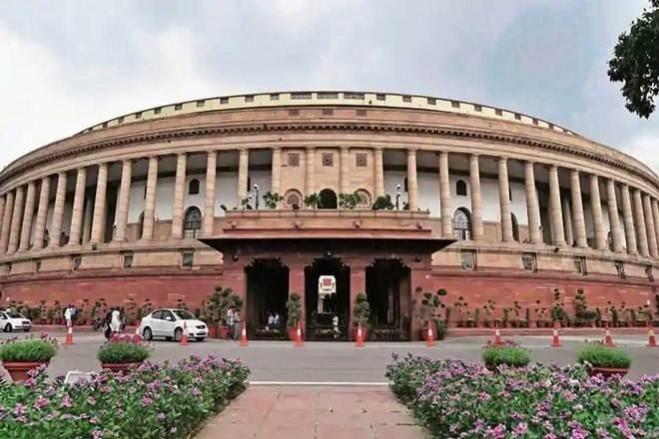I am 20, and here is what I ask of my government. I and more than half of India's population are estimated to be under the age of 25. Far from the 40 something-year-old's claiming to be the voice of the youth, maybe it's time to actually understand what we want. India's young and youthful population has always been highlighted and touted as an advantage but has been far from the concern of our policies and decisions. Our country faces multiple challenges and threats, which haven't been taken head-on and would invariably affect us, the youth more. In recent weeks, two challenges come to mind. While the government may feel they have been addressed or conveniently put to rest, they have been far from what they demand. The best can only be done when we have the resolve and commitment, that remains unhindered by the various interests these decisions will hurt.
A case in point is the recently announced 2070 target for net-zero emissions. While it can be lauded for being a bold step but is far from what the world needs. For perspective, India's target is 20 years behind other developed economies, and 10 years behind China. And a dive into the details highlights that while the target is a faraway goal and is more useful as a diplomatic tool to show India's commitment, we need concrete, achievable targets in the short run. For Delhi NCR residents waking up with itchy throats, and watery eyes thanks to the hazardous air pollution, the worst it has been in 5 years, 2070 is far too distant.

A committed government at the Centre, with governments in several states, needs to take steps that impact us in the here and now as well. Stubble burning, one of the causes of air pollution, has been so only dealt at the state level. Farmers have repeatedly highlighted the costs incurred in non-burning of stubble, which ideally must be included in the MSP, thus subsiding the costs, and discouraging harmful burning. Coal dependence is another demon in India's climate mission, which is not only environmentally disastrous but has been fiscally unhealthy as well. And with the government, aiming at creating a 50-50 ratio of renewable energy and coal by 2030, we still have a long way to be far from the essentiality of coal in our lives. And far from headline-worthy targets, acts that weaken existing environment protection, like the proposed changes to the Forest Act, which favour corporate interests need to be halted. The youth need bold actions that reassure us, that to begin, with we won't have to unfairly suffer for the mistakes of the past and are guaranteed a safe and healthy environment just as our parents and grandparents have.
The social media role
India's youth is more connected than ever before. At every level of society, TikTok and Facebook have penetrated. While we are enjoying the entertainment, the sceptre of the dangers posed by it hangs. Recently, The Facebook Papers, a release of internal documents of Facebook, reported by The New York Times, The Associated Press, and the Wall Street Journal only highlights how problematic their own platform has been. Prior to the 2019 elections, internally Facebook attempted at ensuring the platforms were fair and free. Shockingly a test user reported that guided and led by Facebook's algorithm they were directed towards misinformation and hate speech. The violent and gory content was so much so that the test user had seen more images of dead people in three weeks than they ever had in their lifetime. The concerns on Facebook's initiative and resolve to address the issue have been raised as well. Facebook has been selective in curbing free speech, directing lesser and disproportionate resources towards controlling misinformation in non-US markets.

While the Ministry of Electronics and IT is reviewing these allegations, it would need a resolved and committed effort at ensuring our elections, and law-order isn't disturbed by the powers of social media. For a ruling party that rests on stoking communal hatred and violence, and has disproportionately benefited from the (ab)use of it, can we expect any? The Pegasus ruling by the Supreme Court highlighted the nonchalant attitude of the government toward resolving tech and privacy challenges. Instead, young Indian's have faced the heavy hand of the state for crimes that haven't even been committed. The Disha Ravi case being one of them where a purported tool kit, led to Delhi Police flying down to Bangalore to arrest the young activist. Only recently, reports suggested a lack of evidence may lead to her release. Young India would want to secure and safeguard social media spaces which would allow us to exercise our constitutionally guaranteed rights of free speech without fear of the state. And the reasonable restrictions upon them enforced reasonably. Our privacy is guaranteed from the prying eyes of the state, and the data-hungry corporates. Can we expect the same from the government?
For a generation that sees an unrelenting state, that refuses to accept critiques and suggestions, we need a government that is receptive and open. After all, the effects, long term, and short term of every action taken are going to affect us more than anyone else. And we as the youth of the country cannot only wait for recognition and sensitivity to our cause by the government. We need to stop shying away from policy, politics, and governance. If we continue to shy away, policies in our apparent interest will be dictated by those far removed from our reality. And it may just be too late, till we live in a future created by others for us.
Mohammed Amaan Asim is a student of Ashoka University. Views expressed are author's own and do not reflect the opinions and beliefs of the website or its affiliates.

















